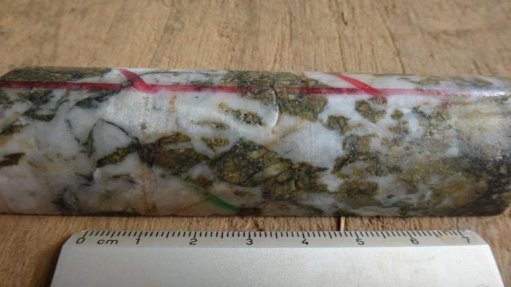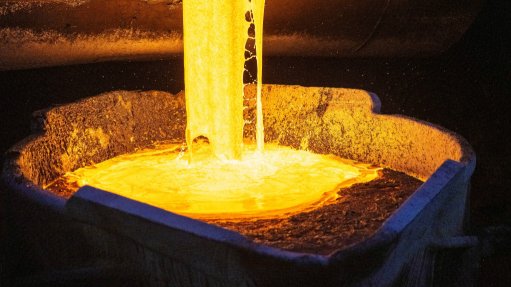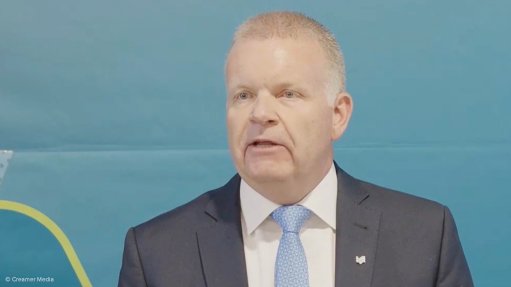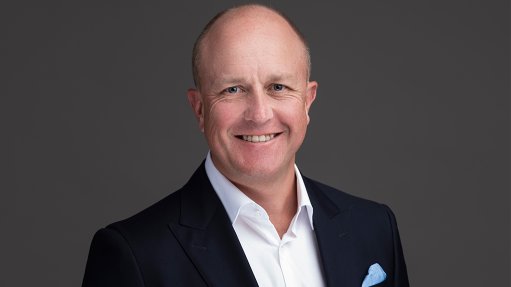South African company turning ultrafine coal waste into usable fuel
South African coal treatment service provider River Energy is recovering fine and ultrafine coal from stockpiles and disposal sites, converting material previously considered waste into usable coal products.
This approach is aimed at maximising the yield from already-mined coal while reducing environmental impact.
The company focuses on recovering coal from existing waste fractions in the coal fields, including both coarse and ultrafine material.
“We look at the coal value chain and say, how can we make it more sustainable and ensure we are producing as much product out of the entire fraction that is being mined as possible, maybe not only energy products, but others as well,” River Energy CEO Dale McLean said at the twenty-first International Coal Preparation Conference, in Sun City, on October 15.
Ultrafines, which are particles smaller than 200 µm, have historically been difficult to handle. The company has developed processes to recover the 50 µm to 200 µm fraction, while solutions for material below 50 µm are still being explored.
“Below 50 µm is part of our journey. We do not yet have a solution for that, but are looking at what are the constituent components there, and what can be done with that material,” McLean said.
Recovered fine coal can be blended with coarse products or processed into briquettes for sale.
“We have a trial unit in South Africa, in Johannesburg, where we are successfully producing tens of tons at the moment for trial work with the industry and confirming results that were achieved in Australia,” McLean said.
Processing coal waste also reduces environmental liabilities. Independent lifecycle assessments examined the impact of avoiding discard facilities, leaving slimes in dams or discarding filter cake.
“What is the actual impact of not having a discard facility, of not leaving your slimes in a dam or discarding your filter cake? What does that mean in terms of your overall footprint from an environmental perspective?” McLean asked.
Mechanical separation, screening and hydrocyclone technologies are used by River Energy to upgrade the ultrafine material. This produces a saleable product with a calorific value of 24 MJ/kg to 25 MJ/kg from typical wet-banked coal.
“All of those could be available to, and are readily available in, the industry to coal producers in South Africa because of the typically thermal coal production that we are targeting, and the value of that thermal coal end product,” McLean said.
Recovering coal from dumps improved efficiency in coal supply chains, he argued.
“Your ability then to construct a story, construct a narrative around the recovery and greening and rehabilitation of the area is so much more enhanced, and the environmental benefits, which we have measured, are quite significant in terms of the lower emissions and net environmental footprint, which is reduced,” the company said.
He assured conference attendees that the approach could coexist with primary coal mining, increasing yield and lowering liabilities and costs in coal production.
Technologies applied by River Energy include dense media separation and thickening circuits, which allow fine particles to be intercepted before they enter storage dams or filter presses.
“There are opportunities to intercept the slurry before it goes into your dams or into your filter presses or other dewatering mechanisms, through your thickener underflow.”
“So it's really taking that additional yield that's available, not putting it into a storage facility, not creating a leaching issue, or a dust issue, or an environmental sterilisation of the area that could be utilised for other purposes, such as crops or animals, turning an environmental liability, through an integrated circuit, into a saleable product,” McLean said.
He noted that its trial unit in South Africa, along with existing facilities in Australia and Indonesia, demonstrated that the technology was proven and scalable.
“We certainly do see this as a proven technology. It’s scalable. We have built large plants and we are looking forward to rolling those out in South Africa,” McLean said.
Article Enquiry
Email Article
Save Article
Feedback
To advertise email advertising@creamermedia.co.za or click here
Announcements
What's On
Subscribe to improve your user experience...
Option 1 (equivalent of R125 a month):
Receive a weekly copy of Creamer Media's Engineering News & Mining Weekly magazine
(print copy for those in South Africa and e-magazine for those outside of South Africa)
Receive daily email newsletters
Access to full search results
Access archive of magazine back copies
Access to Projects in Progress
Access to ONE Research Report of your choice in PDF format
Option 2 (equivalent of R375 a month):
All benefits from Option 1
PLUS
Access to Creamer Media's Research Channel Africa for ALL Research Reports, in PDF format, on various industrial and mining sectors
including Electricity; Water; Energy Transition; Hydrogen; Roads, Rail and Ports; Coal; Gold; Platinum; Battery Metals; etc.
Already a subscriber?
Forgotten your password?
Receive weekly copy of Creamer Media's Engineering News & Mining Weekly magazine (print copy for those in South Africa and e-magazine for those outside of South Africa)
➕
Recieve daily email newsletters
➕
Access to full search results
➕
Access archive of magazine back copies
➕
Access to Projects in Progress
➕
Access to ONE Research Report of your choice in PDF format
RESEARCH CHANNEL AFRICA
R4500 (equivalent of R375 a month)
SUBSCRIBEAll benefits from Option 1
➕
Access to Creamer Media's Research Channel Africa for ALL Research Reports on various industrial and mining sectors, in PDF format, including on:
Electricity
➕
Water
➕
Energy Transition
➕
Hydrogen
➕
Roads, Rail and Ports
➕
Coal
➕
Gold
➕
Platinum
➕
Battery Metals
➕
etc.
Receive all benefits from Option 1 or Option 2 delivered to numerous people at your company
➕
Multiple User names and Passwords for simultaneous log-ins
➕
Intranet integration access to all in your organisation





















